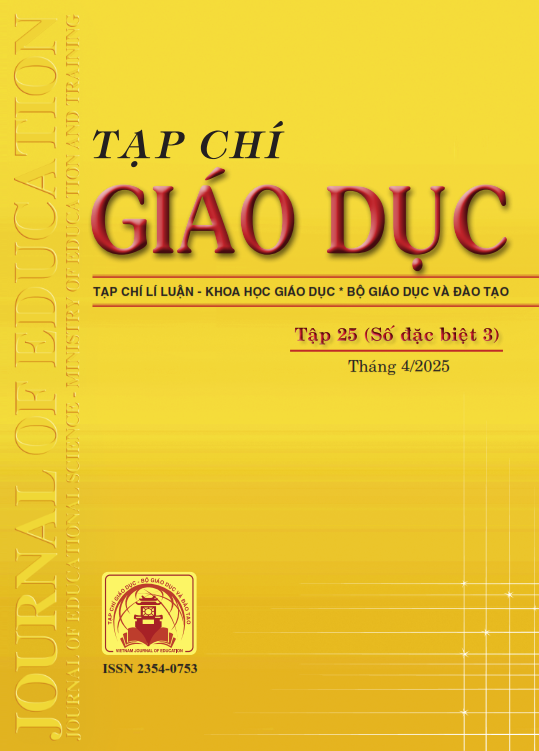Thực trạng sử dụng các ứng dụng trên thiết bị di động trong việc học tiếng Anh của sinh viên: Nghiên cứu tại Trường Đại học Thương mại
Tóm tắt
In the context of global educational transformation, along with the technological revolution in education, the use of mobile devices as learning tools has increasingly prevalent. However, despite learners’ awareness of the effectiveness of mobile learning applications and their frequent usage, there are still limitations in how they utilize these applications. This qualitative study was conducted with a group of 50 students from 5 non-English departments at a university in Hanoi through direct interviews to investigate the current situation of students' use of mobile applications in English learning and the impact of these applications on their English acquisition process. The results showed that students primarily use mobile applications as supplementary tools to formal learning in a self-directed manner, with a clear preference for applications that provide immediate feedback and interactive features. The study also highlights both the benefits and challenges of integrating mobile applications into students’ English learning processes. The results contribute to the development of more effective mobile application-assisted learning strategies tailored specifically to the higher education context in Vietnam.
Tài liệu tham khảo
Đỗ Văn Hùng, Thái Thị Trâm (2014). Thư viện đại học trước xu thế sử dụng thiết bị di động trong học tập của sinh viên. Tạp chí Thư viện Việt Nam, 2014(5), 29-34.
Ellis, R., & Larsen-Freeman, D. (2023). Contemporary perspectives on second language acquisition theory in the digital age. Applied Linguistics Review, 14(3), 301-324.
Kukulska-Hulme, A., & Shield, L. (2023). Mobile-assisted language learning: Evolution and innovation in pedagogical practice. ReCALL, 35(1), 1-19.
Le, T. M., & Nguyen, H. P. (2023). Learner autonomy in mobile-assisted language learning: A study of Vietnamese university students. Language Learning & Technology, 27(2), 45-63.
Nguyen, D. H, & Pham, H. H. (2022). Factors affecting the validity of internal audit research at commercial banks in Vietnam. Journal of Positive School Psychology, 115-129.
Park, S. Y., & Jung, H. J. (2020). Cultural influences on mobile-assisted language learning in Asian contexts. TESOL Quarterly, 54(2), 405-427.
Pham, T. T., Tran, V. H., & Le, M. T. (2024). Interactive features in mobile language learning applications: An analysis of user engagement and learning outcomes. Computer Assisted Language Learning, 37(1), 15-34.
Rosell-Aguilar, F. (2018). Autonomous language learning through a mobile application: A user evaluation of the Duolingo app. Computer Assisted Language Learning, 31(8), 854-881.
Tran, T. H., Nguyen, M. L., & Le, V. T. (2023). Integration challenges of mobile applications in Vietnamese university English programs: A multi-institutional study. Journal of Language Teaching and Technology, 12(3), 234-256.
Wang, Y. F., & Chen, X. (2022). Seamless learning experiences in mobile-assisted language learning: A systematic review. International Journal of Mobile Learning and Organisation, 16(3), 225-247.
Zhang, L., & Liu, R. (2023). Noticing and awareness in mobile-assisted language learning: Implications for app design and implementation. CALICO Journal, 40(2), 156-175.
Đã Xuất bản
Cách trích dẫn
Số
Chuyên mục
Giấy phép

Tác phẩm này được cấp phép theo Ghi nhận tác giả của Creative Commons Giấy phép quốc tế 4.0 .












